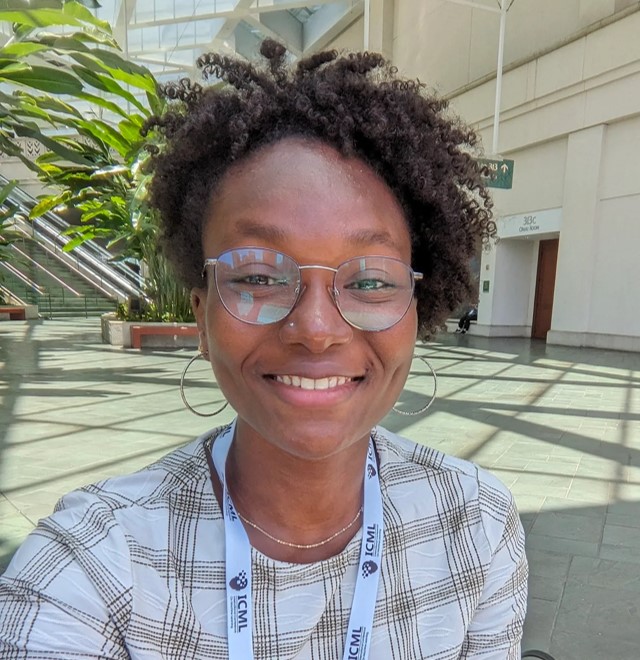
ΑΙhub.org
DataLike: Interview with Tẹjúmádé Àfọ̀njá

Profile
Tẹjúmádé Àfọ̀njá is a doctoral researcher at CISPA Helmholtz Center for Information Security Saarbrücken, Saarland, Germany. Her research focuses on developing privacy-preserving generative models for tabular data and speech models tailored for African-accented English. She is also the co-founder of AISaturdays Lagos whose aim is to make AI knowledge easily accessible in Africa; free courses on data science, machine learning and deep learning are offered. She is among the few people working to make African data accessible on the internet.
She shares her story about how she balances the multiple roles she plays to maintain a healthy work/life balance.
Provide a brief overview of your career and how you got started in your field.
My journey into the realm of technology began in my second year of undergraduate studies, ignited by the captivating images of NASA’s Curiosity rover exploring Mars. This sparked a deep fascination with the concept of creating machines capable of “thinking” — a notion that resonated with me as a sci-fi enthusiast intrigued by the prospect of robots undertaking a variety of tasks to assist humans. Initially, I embarked on a path in Mechanical Engineering, but my growing interest in intelligent systems led me to pivot towards Artificial Intelligence and Computer Science.
What was your main motivation to pivot from the industry path in data science to research?
Upon completing my undergraduate education, I co-founded AI Saturdays Lagos with a group of like-minded individuals. Our mission is to make AI knowledge accessible across Africa. Although I briefly worked as a web developer, my career path eventually evolved, and I took on a role leading a team of engineers as an AI Engineer. Seeking to deepen my expertise, I decided to pursue a Master’s degree in Computer Science. Currently, I am engaged in doctoral research in Computer Science, concentrating on the development of privacy-preserving generative models for tabular data and speech models tailored for African-accented English.
Have there been times when work-life balance was a significant challenge, and how did you handle it?
Relocating to Europe for a Computer Science degree, adapting to a new culture, diving into a different academic field, and juggling my responsibilities as a community organizer for AI Saturdays Lagos, where I arranged free AI classes and workshops remotely — amidst other volunteering responsibilities — posed significant challenges. For many months, I found myself struggling. However, over time, I’ve learned to identify early signs of the patterns that previously led to difficulties — whether it was overworking myself, at which point I’d slow down, or excessive worry about commitments, prompting me to postpone them until I’m better equipped emotionally, physically, and mentally. Now, I place a higher emphasis on wellness and meticulously plan my schedule to ensure I can make meaningful contributions to what’s important to me.
Find out more
You can find Tẹjúmádé on LinkedIn here.
Other interviews with, and articles featuring, Tẹjúmádé:
- “We will be at a disadvantage if we don’t build our skills and knowledge about AI-Tools.” – CISPA interview
- How Africa is seizing an AI opportunity
- Interview with Tech Women Lagos













